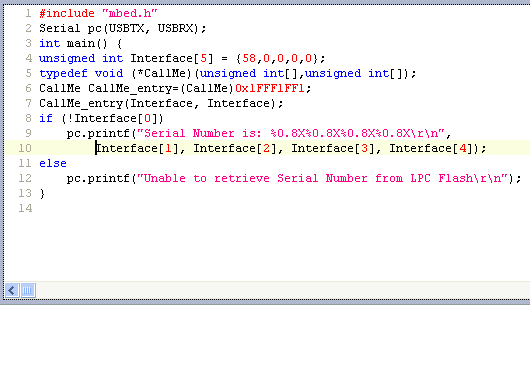You can use a "Locally Administered" MAC address of your own creation. This is allowed by the standard.
Locally administered MAC addresses are distinguished from Universally administered MAC addresses by setting the second least significant bit of the most significant byte of the MAC address. If the bit is 1 the address is locally administered, if it is zero, it is universally administered. A Universally administered address should not be used, unless it has been assigned to you or a device you're using.

Note, that assigned Organizationally Unique Identifiers (OUIs) do not apply to locally administered addresses. The only other bit you have to be concerned with is the least significant bit of the most significant byte, the unicast/multicast bit.
If you need a unique number to distinguish your LPC1768 processor (whether it be on an mbed board or your own board), you can use the LPC1768 unique serial number. It uniquely identifies a single unit among all LPC17XX devices and is available in the LPC1768's flash.
Here is a sample program to retrieve and display an LPC1768's unique serial number:

/media/uploads/Harry/serialnumberprogram.txt
This might seem like pretty stupid questions. I searched but could not find any thing...
1.) Any properly complied BIN file (program) should run on any mbed correct? For example, If I wrote a program and compiled it. Then copied the bin file onto another mbed device, it should run on the other device correct? There is no key between the device and the compiled program is there?
2.) This leads to the second question... Is there anything on an mbed that makes it totaly unique from any other mbed? Like an embedded serial number or something like that? And if so, can it be exposed to your code?
Hope these questions makes sense...
Thanks in advance
Tim